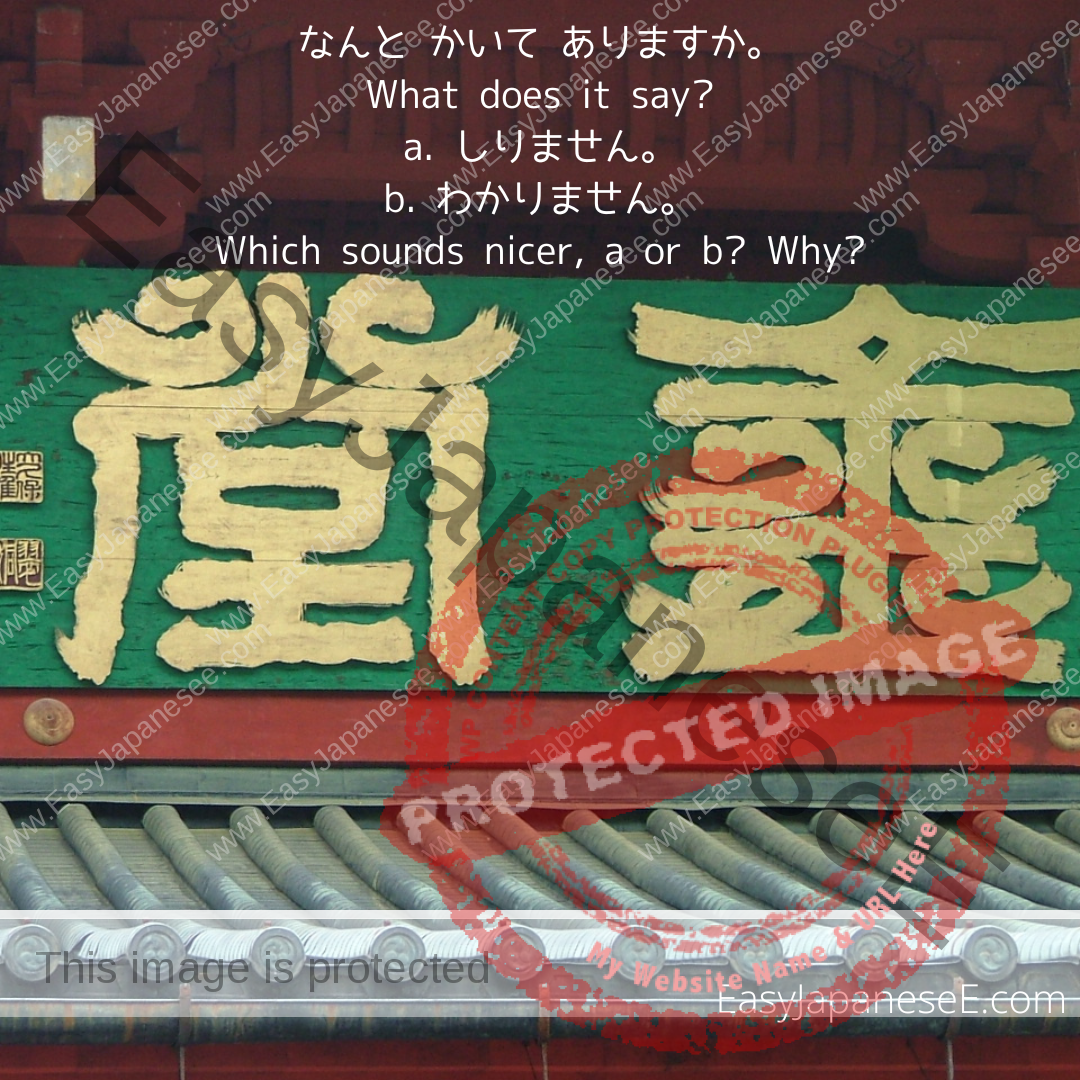しりません vs わかりません is a bit confusing concept to non-native speakers of Japanese but if a Japanese native speaker teacher asked this question and if a Japanese native speaker student answers it with a. しりません, I’m sure that will make the teacher somewhat angry.
When I mention this in my Japanese class, all my students always go “whaaaat?”
Many beginner students of Japanese are taught:
know = しっています
understand = わかります
So in their mind:
I don’t know = しりません (the negative of しっています is しりません NOT しっていません. If not sure why, please read this post.)
I don’t understand = わかりません
Most of them think しりません is a better, or more polite, answer than わかりません. Then why does it make a native speaker teacher angry?
しりません can sound accusing or reckless
In my previous post, しりません vs しっていません, I explained しりません describes the state of not knowing at all. So if you say しりません, that means, “I didn’t get to know it” and that could sound to your teacher “You never taught me that!” I think you can see why it sounds accusing.
Also in classroom, teachers often ask a question when they think students can work out the answer through what has been taught. Then しりません sounds like you have no intention of trying to work it out, and based on that, your teacher may think you are reckless.
On the other hand, わかりません actually more or less means “I cannot dissect the concept well enough to explain the answer” rather than “I don’t understand,” so it sounds more humble and not accusing to anyone.
So when you approach your teacher or your boss for help, I think you should always say わかりません rather than しりません:
この道具の使い方がわかりません。
I don’t know how to use this tool.
この漢字の意味がわからないので教えてください。
Please teach me because I don’t know the meaning of this kanji.
わかりません vs しりません in a social scene
If a friendly colleague or a neighbour asks you, 週末何するの?(what are you doing over the weekend?), don’t say しりません either, unless you really mean to say, “it’s none of your business. Leave me alone.” Even if you have not decided what to do, you will have some idea how you want to spend your weekend. So しりません is not appropriate.
When しりません is OK
It’s OK to say しりません when:
- You totally have no idea at all, and
- It is expected that you don’t know it.
Like:
相撲のことは全然知りませんから、教えてください。
As I don’t know anything about Sumo wrestling, please tell me.昨日パーティーで少し話しただけなので、電話番号は知りません。
I only spoke to him for a while at a party yesterday, so I don’t know his phone number.
しりませんでした is a good phrase to use when you apologise.
使い方を知りませんでした。申し訳ありません。
I didn’t know how to use it. I’m terribly sorry.知りませんでした。ごめんなさい。
I didn’t know. I’m sorry.
I hope this post made sense!
For more beginners’ study material, please visit JLPT N5 Grammar and JLPT N5 Kanji pages.


One Reply to “しりません vs わかりません”